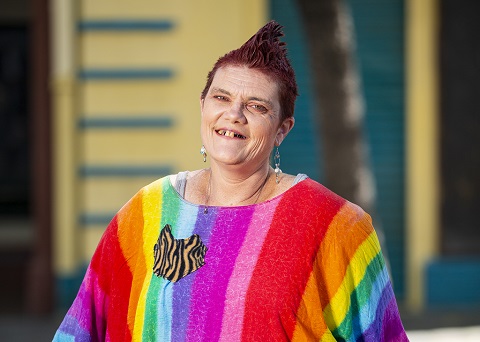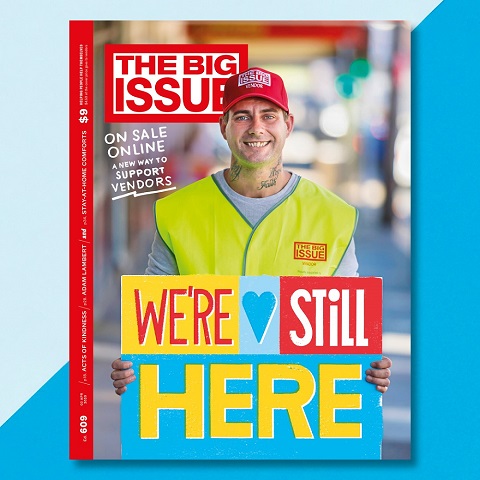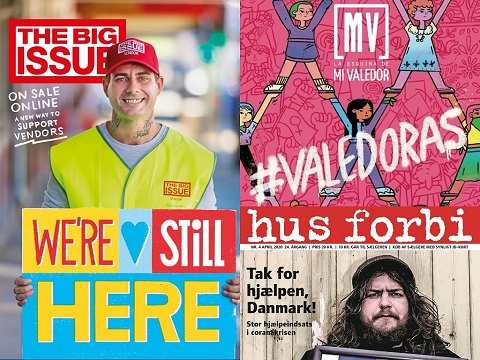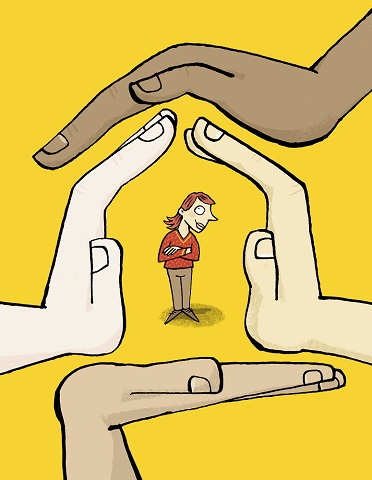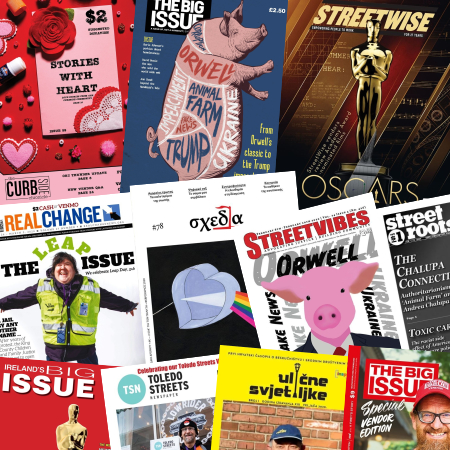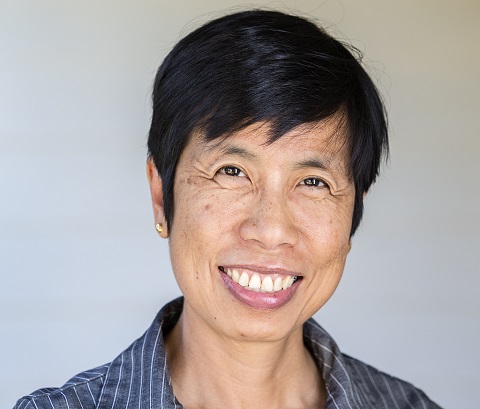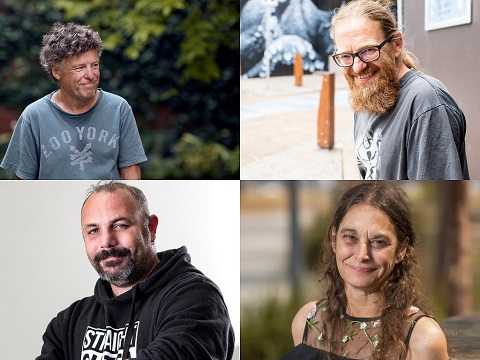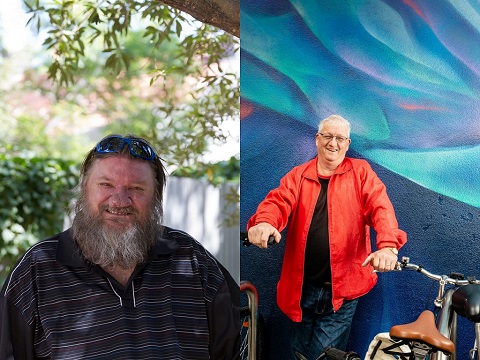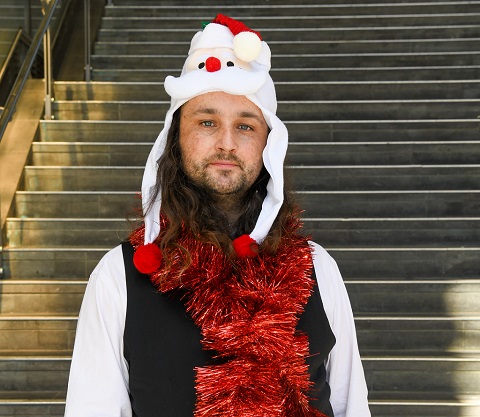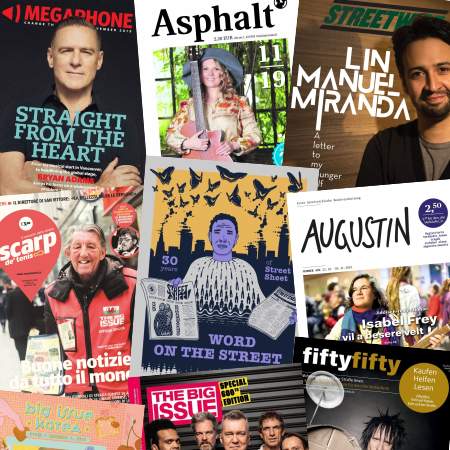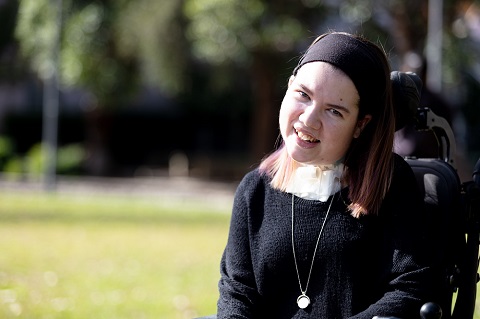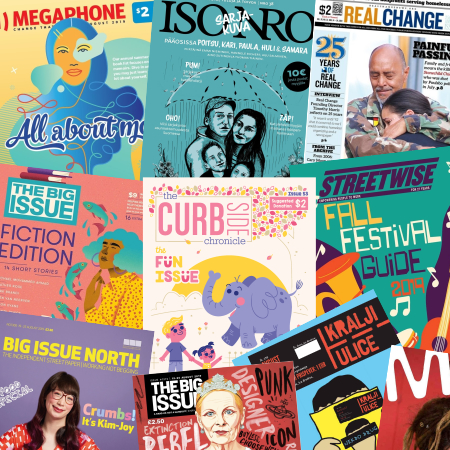By Anastasia Safioleas, The Big Issue Australia
As the Socceroos limbered up in preparation for the World Cup, on a cold and windswept soccer pitch in inner-city Melbourne a motley group of players gather for their weekly training session.
Despite the iffy weather, about 50 people have turned up to play. Men and woman, young and old, with various levels of fitness, gather around coach Danilo in the shadow cast by a pair of nearby housing commission buildings. Danilo speaks about the importance of respect and reminds them they are here to have fun before they launch into warm-up drills.
The atmosphere is competitive but friendly – the occasional laugh rings across the ground. Kicking the ball to each other, we chat; everyone has a story to tell. Some are homeless or enduring long-term unemployment; others are battling a mental illness or substance abuse issues; a handful have a physical disability. Refugees and a few people newly-released from prison are also here, trying to find their place in society. All, however, are using soccer as a way to regain control of their lives.
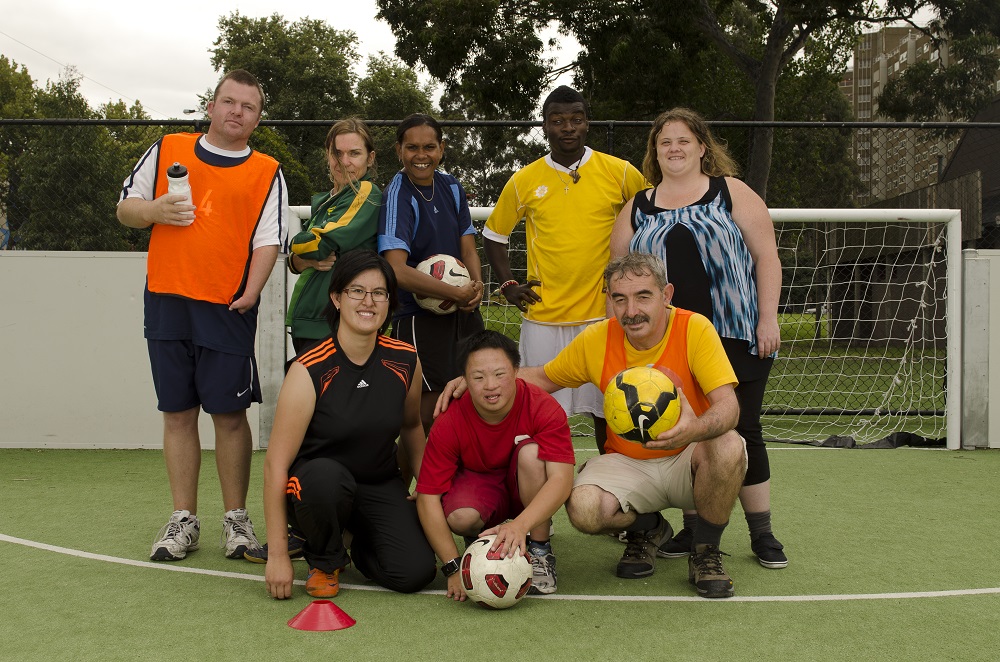
The Big Issue’s Community Street Soccer Program began with a single training session in 2004. Today it boasts programs around Australia, including one in Alice Springs for young Indigenous people. National coach George Halkias says the program “helps empower the players to make positive lifestyle choices by giving them the right information, education and motivation”. Essentially, soccer is being used to positively change lives.
Tiziano is trying on a pair of football boots from a pile that has been donated. Despite being one of the oldest here, as a former professional footballer back home in Italy he puts the younger players through their paces. “I started a year-and-a-half ago when I was very depressed and in hospital,” he says. “I broke my back, so coming here has helped me regain my health. My involvement straightaway was very positive because I mix with different people of different backgrounds. I feel close to these people here because, like myself, they struggle in life and are having difficulties day to day.” He turns to show me a scar that begins at the base of his neck and runs alongside his spine before disappearing down the back of his top.
The focus is firmly on health. Professionals often attend sessions to speak to players about nutrition or the importance of good sleeping habits, and there have been yoga sessions as well as cooking classes. The mentoring provided by coaches such as George and Danilo is also an integral part of the program.
“We try to be positive role models,” George says. “The program fosters a positive culture and an environment where they can push each other towards self-improvement and be there for each other.”
I feel close to these people here because, like myself, they struggle in life and are having difficulties day to day
Since being released from prison last year, participating in Street Soccer has helped Robert better connect with people. “I’ve learned to control my anger and my outbursts. It keeps me busy and really helps my mental health,” he says. Born in Sydney, he and four older brothers moved around a lot thanks to their father’s job in the air force. “My childhood wasn’t the best, but it wasn’t the worst. Dad was away all the time and sometimes we only saw him on weekends. We moved all the time and had to start school over again. I didn’t like school, I always got in trouble, so I left…”
Rose, another Street Soccer regular, also attends a dedicated women’s session later in the week. “I’m a keep-to-myself kind of person so it gets me out of the house, and I get exercise,” she says. “I’ve always been interested in sport but I’m not very confident. I have mental health issues. I’ve had them for a very long time.” And Lasu, who arrived in Australia from Sudan in 2005, says: “I have no family in Sudan. My mother, my father and brothers and sisters all died, so I came here by myself. One of my workers brought me down here. She knew I loved soccer. I’ve been here ever since. Playing with Street Soccer keeps me healthy and occupied. It keeps me busy and I stay out of trouble and make friends.”
It’s finally time for a game. The group is divided into two teams and we all pile onto the pitch for a proper kick. It’s a fast and competitive match but there’s plenty of comradery. Most players manage a kick of the ball and there are high-fives and hugs when a goal is scored.
During half time, Tiziano wanders over. “Coming to Street Soccer has helped me a lot,” he says. “I have regained my health and I’m back living in the community. I am going to keep going, with determination in my life.”





